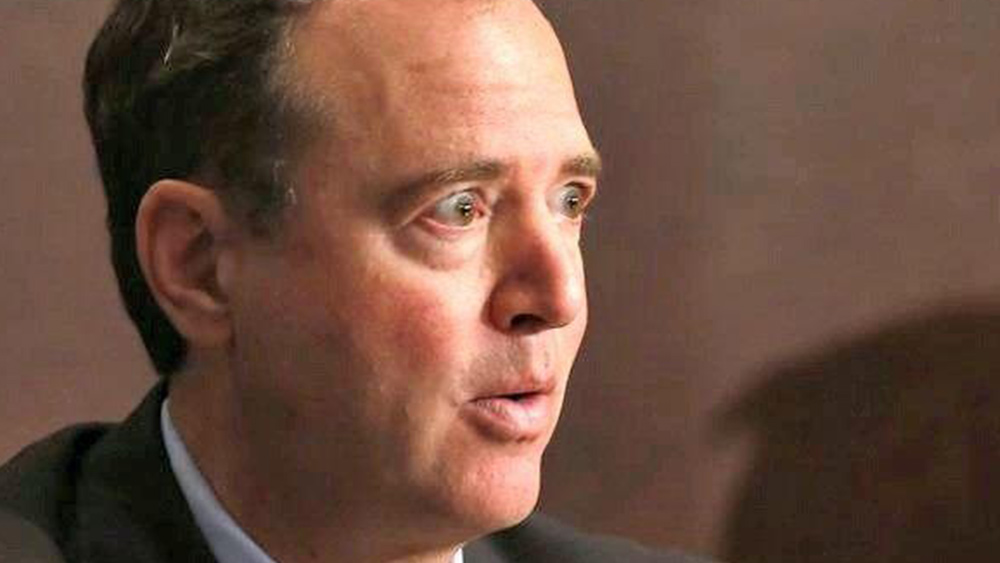New IRS reporting rules send chills throughout crypto world
11/11/2021 / By Ramon Tomey

New tax reporting rules included in President Joe Biden’s $1.2 trillion infrastructure bill became a cause for alarm in the cryptocurrency and non-fungible token (NFT) sectors. Individuals and groups in those sectors think the new provisions could impact transactions.
The amendment to section 6050I of the Internal Revenue Code of 1986 was quietly inserted in the infrastructure bill as it was passed by the Senate. “This provision, which would apply to all Americans who receive any kind of digital asset, has thus far escaped public or congressional scrutiny,” a September 2021 report by Abraham Sutherland pointed out.
The proposed amendment seeks to make receiving digital assets – including crypto and NFTs – a felony if they are not disclosed correctly. “Any person who receives over $10,000 in digital assets must verify the sender’s personal information, including [their] Social Security number, and sign and submit a report to the [federal] government within 15 days,” Sutherland’s report said. Americans who fail to do so will be subject to fines and jail time of up to five years.
“Miners, stakers, lenders, decentralized application and marketplace users, traders, businesses and individuals are all at risk of being subject to this reporting requirement – even though in most situations, the person or entity in receipt is not in the position to report the required information,” the attorney said. “A statute creating felony crimes for users of digital assets should be debated openly, not quietly inserted into a spending bill.”
The current version of the law requires people receiving more than $10,000 in cash and equivalents such as cashier’s checks and money orders to disclose these transactions. Pertinent details such as the sender’s name, address and Social Security number must be filed with the Internal Revenue Service (IRS), alongside receipts for these amounts.
According to Sutherland’s report, the proposal relies on a 1984 law aimed at discouraging in-person cash transfers and encouraging the use of financial institutions for large transactions. It pointed out that including digital assets in the provision makes compliance “unduly burdensome” as any “receipt” can prompt the IRS reporting. (Related: IRS now cracking down on Bitcoin with tools that eliminate transaction anonymity.)
Federal government tightens grip on crypto
The provision comes amid governments worldwide trying to keep up with the rapid rise of crypto. They claim that the unregulated sector could be potentially tapped for money laundering.
On the other hand, critics say the new provision could force often-anonymous participants in crypto and NFT trading to disclose information about the people they do business with – which they simply might not have. Crypto industry pundits also warn that decentralized finance (DeFi) operations that rely on automated smart contracts could also be hit by the provision.
Brian Armstrong, CEO of crypto exchange platform Coinbase, tweeted about the amendment: “The 6050I provision in the infrastructure bill seems like a disaster if I understand it. [It’s a] criminal felony statute that could freeze a lot of healthy crypto behavior, like DeFi.”
The amendment also contains a provision expanding the definition of a broker to include cryptocurrency brokers. Currently, brokers are also required to report many transactions to the IRS. The Crypto Council for Innovation (CCI), a group of crypto industry leaders, expressed concern for the provision in a statement.
“We are deeply concerned with the passage of problematic language on cryptocurrency in the infrastructure bill. The current reporting structure lacks clarity, and has the potential to harm the very people who strive to develop businesses and support the U.S. economy,” the group’s statement said.
CCI brought up two concerns in its statement posted on Twitter. First, it pointed out that the broker definition may include entities without customers – such as crypto miners and developers. Second, it noted that the reporting requirement “creates an undue financial surveillance” that may extend to individuals who are not even customers. “Our companies encourage reporting, but this provision places unnecessary burdens on many, including those who are not customers,” CCI said. (Related: New infrastructure bill contains Orwellian surveillance provision targeting cryptocurrency users, spelling DOOM for the crypto markets if passed.)
However, some experts said fears over the infrastructure bill appear to be overly exaggerated. William Quigley, co-founder of the Tether cryptocurrency and the blockchain platform WAX, said: “I don’t think people will notice much. Did everything die in crypto in the U.S. when Coinbase began [issuing] Form 1099s a few years ago?” Quigley referred to the crypto exchange platform’s 2017 issuance of IRS forms for so-called other sources of income.
Tax attorney James Creech, who specializes in crypto, said: “The crypto community got a strong wake-up call that it needs to highlight the benefits rather than let Washington dictate top-down. Once you get identified as the source of the tax gap, you also get identified as something that needs to be cracked down upon.”
BitcoinCrash.news has more articles about how the new IRS reporting requirements impact the world of crypto.
Sources include:
ProofOfStakeAlliance.org [PDF]
Tagged Under: big government, Bubble, cryptocurrency, decentralized finance, digital assets, financial disclosure, financial surveillance, infrastructure bill, Internal Revenue Code, IRS, NFT, non-fungible tokens, privacy watch
RECENT NEWS & ARTICLES
COPYRIGHT © 2017 BIG GOVERNMENT NEWS





















